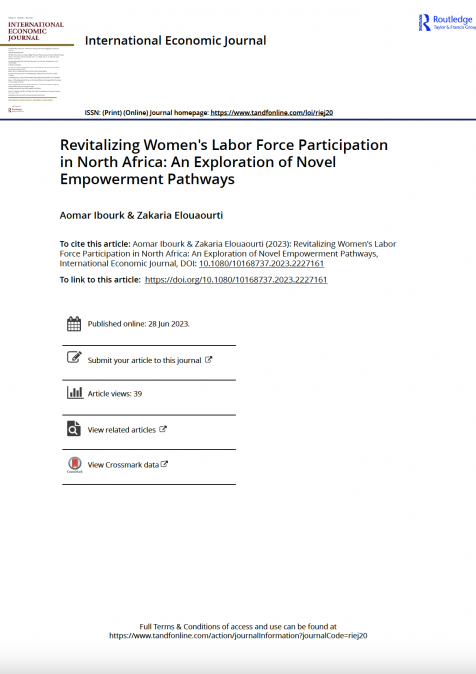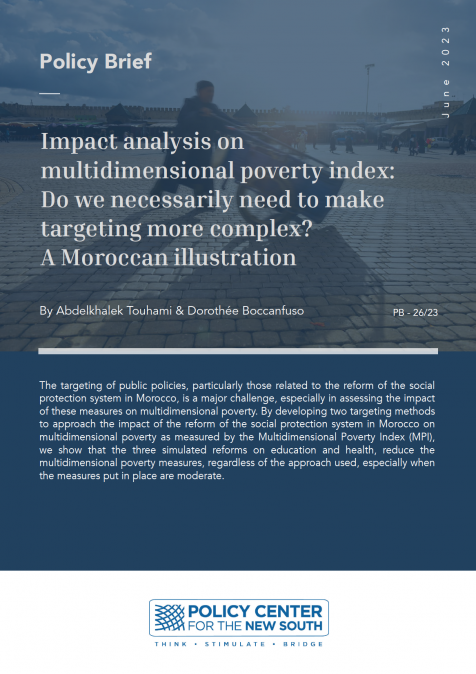Publications /
Research Paper
This paper was originally published on tandfonline.com
Youth’s life paths have become increasingly challenging, especially for those classified as ‘Not in Education, Employment, or Training’ (NEET), who comprise 31.2% of North Africa’s youth population. This paper contributes to the growing discourse on the NEET phenomenon by exploring its structural and psychosocial dimensions in North Africa, with a specific focus on gender. Using a rich micro-level dataset of 7,815 individuals aged 15 to 29 from Morocco, Egypt, Tunisia, and Algeria, the study applies a binary Logit model to assess the influence of household structure, subjective perceptions, and political trust on NEET status. While gender does not appear to significantly influence NEET outcomes, urban residence is associated with a lower probability of being NEET. Surprisingly, higher educational attainment does not consistently protect against NEET status in the cases of Morocco, Egypt, and Tunisia. Household characteristics, particularly the presence of employed and educated family members, are found to be key protective factors. The analysis also highlights significant correlations between NEET status and subjective factors such as self-esteem, institutional trust, and perceived family support. Although causality cannot be definitively claimed due to potential endogeneity, the findings offer valuable insights for policymakers seeking to address youth disengagement and promote more inclusive pathways to education and employment.









